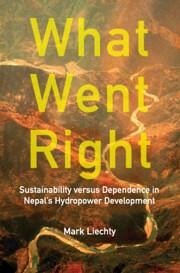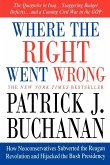"What Went Right explores why Nepal's hydropower sector is one of the country's few development success stories. Unlike almost every other "developing" country, in Nepal local firms design and build complex hydropower facilities using Nepali engineers, builders, components, and labor. Nepal has largely avoided the trap whereby most poor countries are forced to accept energy infrastructure projects that are foreign designed, funded, and built-typically resulting in debt, dependency, and unsustainability. This book traces the half-century history of the Butwal Power Company and the anti-establishment development logic of its founder, Odd Hoftun. A pioneering Norwegian engineer, development worker, and missionary, Hoftun insisted that, if Nepal was to create a modern national economy, Nepalis must develop technical skills needed to break the cycle of poverty, a view that led Hoftun to promote Nepali-driven hydropower development as the key to Nepal's industrial future. Counter to prevailing development logics (then and now), Hoftun insisted that all aspects of hydropower development (design, construction, manufacturing, maintenance) be done in Nepal, by Nepalis. The book traces the struggle between two competing development paradigms: one that emphasizes gradual national human capacity building (at the expense of speed and efficiency) and another that emphasizes rapid, large-scale infrastructure building (at the risk of unsustainability and dependency). At stake is whether what passes for "development" primarily benefits the countries in which it occurs, or the banks, corporations, and other investors that finance capital-intensive projects. What Went Right brings a vision for sustainable development into vigorous conversation with other development strategies that have proven, repeatedly, to be less productive"--
Hinweis: Dieser Artikel kann nur an eine deutsche Lieferadresse ausgeliefert werden.
Hinweis: Dieser Artikel kann nur an eine deutsche Lieferadresse ausgeliefert werden.








